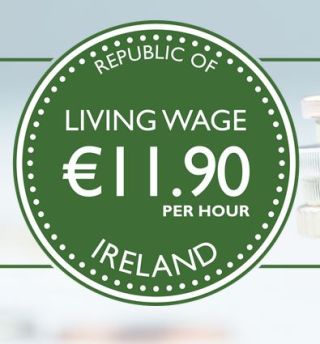CSO releases minimum wage data

The CSO released its estimates on minimum wage employment last week. The findings are generally unsurprising. People are more likely to earn the National Minimum Wage (NMW) if they are:
- Younger (Half of NMW are 24 or younger)
- Female (55.3% of NMW employees are women)
- Have low levels of education (employees whose highest level of education was Secondary accounted for 61.0% of all NMW employees)
- Are foreign nationals (7.1% of Irish nationals earn the NMW or less. The corresponding figure for non-Irish Nationals was 9.6%)
- Work part-time (almost three in five employees earning the NMW or less were part-time)
- Work in sectors of the economy that are well known to have a high concentration of employees in low pay, e.g. retail, and the accommodation and food sector.
International evidence generally identifies three groups that are particularly vulnerable to precarious and low-paid employment: women, young people and foreign nationals. Trends in Ireland regarding low-paid and minimum wage employment follow broadly similar patterns. While all this is interesting and important to know, the most significant issue is that such a substantial portion of Irish workers earns so far below what is necessary to achieve the minimum socially acceptable standard of living in Ireland.
While we welcome the fall in the proportion of employees earning the minimum wage or lower - the number of employees earning the NMW was 9 per cent lower at the end of 2018 than 12 months previously - it still should be noted that despite very welcome increases in the NMW in the last few years, it remains about 18 per cent below the living wage of €11.90, which the hourly rate required for a single person working 39 hours a week to achieve what is considered a decent standard of living in Ireland.
The CSO estimates that around 137,000 employees are earning the minimum wage or less. Previous studies suggest that up to twice as many people again may be earning more than the minimum wage but less than the living wage. Ireland has a significant issue with low pay, with a far greater prevalence of low paid employment than most of our European peers. We also know that around 110,000 people in Ireland live in poverty despite having a job.
It is long past time that government should tackle this issue, and Social Justice Ireland recommends that government set a five-year timeframe to close the gap between the National Minimum Wage and the living wage, and implement a system of Refundable Tax Credits in Budget 2020 to help mitigate the issue of in-work poverty.

GIVING A VOICE TO THOSE
WHO DON’T HAVE A VOICE
When you support Social Justice Ireland, you are tackling the causes of problems.
